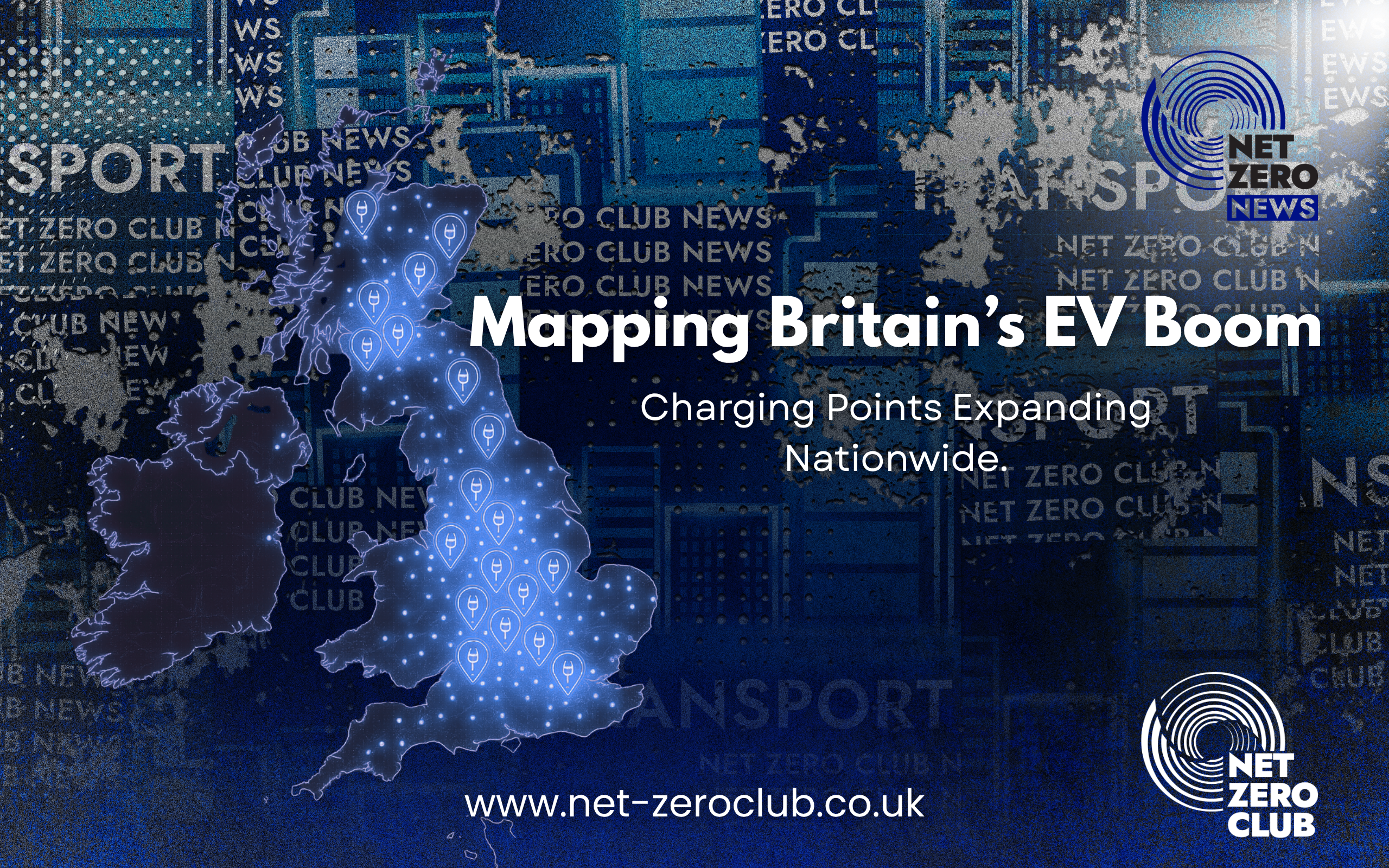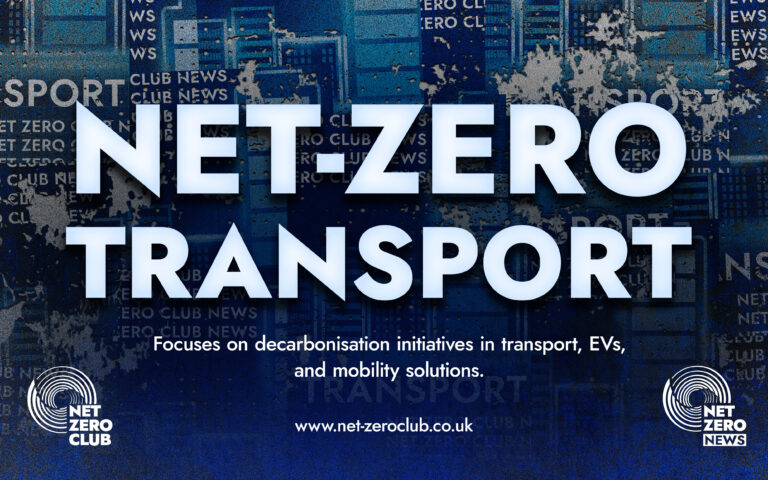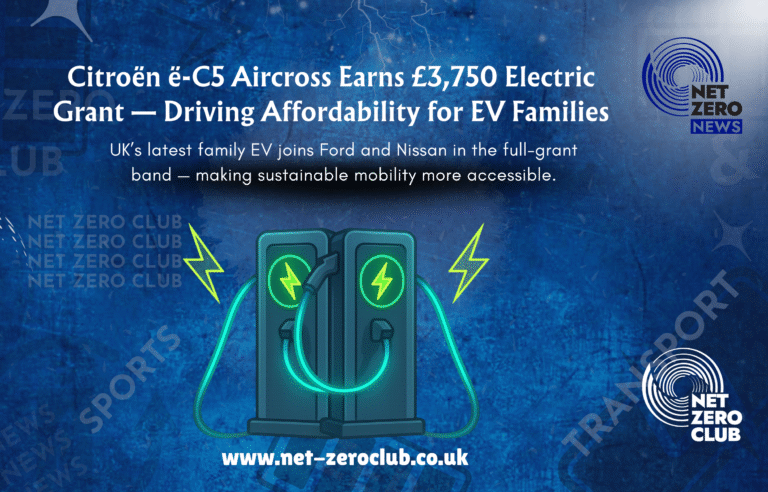Net-zero drive boosts public EV charger funding; points grow 22%

Welcome to Net Zero News, where we bring you the latest developments driving the UK’s transition to a net-zero future. In a significant step towards electrifying road transport, new data from Zapmap shows that 3,928 public charge points were added across the UK in the third quarter of 2025, representing a 22% increase compared to the same period last year.
Net Zero News can reveal that this surge in installations spans urban centres, suburban locales and rural communities, with local councils, private operators and national bodies all playing a part. The figures cover July to September 2025 and come at a time when the Department for Transport has ramped up efforts to ensure charging infrastructure keeps pace with soaring electric vehicle (EV) adoption.
Behind this rollout is the UK’s National Charging Infrastructure Strategy, which aims to deliver 300,000 public charge points by 2030 as part of the Transport Decarbonisation Plan. Rapid chargers, providing 100–350 kW of power, account for a growing share of new deployments, reducing wait times and tackling range anxiety. Residential and workplace chargers continue to expand too, supported by the Office for Zero Emission Vehicles (OZEV) grant scheme.
This growth matters because it directly underpins the UK’s 2035 ban on new petrol and diesel cars. Net Zero News understands this charging expansion could save up to 1.2 million tonnes of CO₂ annually by 2030, compared to a business-as-usual scenario. Widespread, reliable charging infrastructure is a critical enabler for drivers making the switch, and confidence in network coverage is one of the strongest drivers of EV uptake.
Analysts project that each additional 1,000 public chargers contributes roughly 0.5% to overall EV registration growth. Improved charging density also unlocks opportunities for fleet electrification in logistics and public transport. According to a recent Net Zero News analysis of local authority plans, many councils are now integrating charge point deployment with street lighting and parking upgrades to maximise efficiency.
Funding for the Q3 rollout has come from a mix of public and private sources. OZEV’s Local Electric Vehicle Infrastructure (LEVI) fund has committed over £250 million this year, matched by contributions from major utilities and charge point operators. Private investors are joining forces with regional authorities, while energy grid upgrades are being co-financed by the National Grid and distribution network operators to handle increased load.
Key delivery partners include BP Pulse, Pod Point, InstaVolt and Shell Recharge, alongside smaller independents. Local councils in Greater Manchester, Glasgow and the South East have installed new rapid hubs on major trunk roads. Net Zero News reported earlier this year on how Portsmouth City Council secured European funding for urban charging clusters (https://news.net-zeroclub.co.uk/portsmouth-urban-charging-clusters).
This acceleration aligns with the UK’s broader Climate Change Act commitments and the Clean Growth Strategy. The government’s recently updated Transport Decarbonisation Plan emphasises both the need for regional equity in charging provision and the importance of grid stability. Net Zero News covered the Plan’s highlight on demand-side response trials that pair EV charging with battery storage (https://news.net-zeroclub.co.uk/demand-response-ev-charging).
On the ground, new charge points are already making a difference. Hospitality businesses report longer dwell times as drivers charge during meals, while delivery firms note lower operating costs through overnight charging at depots. In rural and coastal communities, where petrol stations are fewer, the new public points open up opportunities for staycations in zero-emission vehicles.
The expansion effort is also generating local jobs in installation, maintenance and customer service. Training programmes supported by the Energy & Utility Skills Partnership are certifying hundreds of technicians each quarter, ensuring the workforce can meet growing demand.
Looking ahead, the industry expects another 4,500 units to go live in Q4 2025, with plans underway for interoperable smart charging points that respond to dynamic electricity pricing. Stakeholders are focusing on integrating renewables, bi-directional charging and enhanced digital platforms to deliver a seamless user experience.
—
Net Zero News is powered by the Net Zero Club (https://www.net-zeroclub.co.uk).
Join the UK’s fastest-growing net-zero community.
Upcoming Events:
– Net Zero Scotland Projects Conference (https://www.net-zero.scot/private-sector-register)
– Net Zero Nations Projects Conference (https://www.net-zeronations.co.uk/private-sector)
Got a net-zero project to share? Email: lee@net-zero.scot

 Got net-zero news, project updates, or product launches to share?
Got net-zero news, project updates, or product launches to share? 

